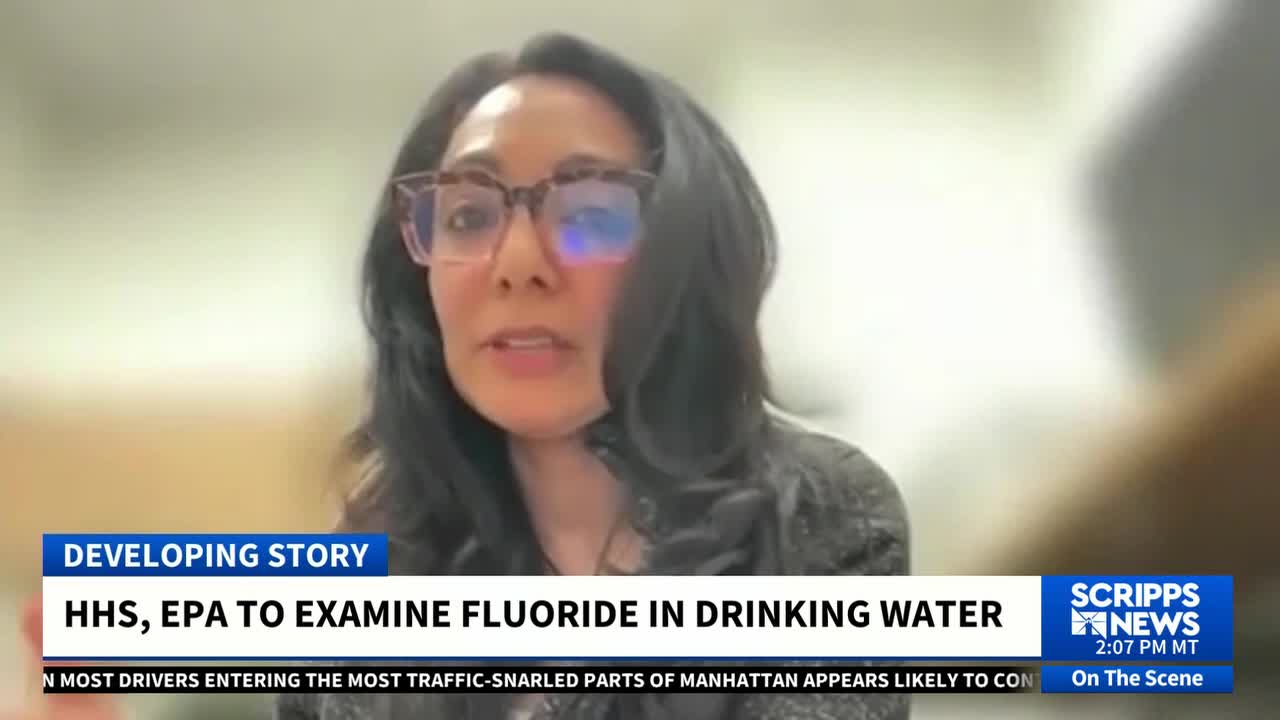Health and Human Services Secretary Robert F. Kennedy Jr. says he plans to instruct the Centers for Disease Control and Prevention to stop recommending fluoridation in public water systems across the U.S.
"It makes no sense to have fluoride in our water," Kennedy said at an event in Utah on Monday.
Utah is the first state to ban fluoride in public drinking water with a law going into effect next month.
At the same event, Administrator of the Environmental Protection Agency Lee Zeldin said his agency is going to re-examine studies on potential risks tied to fluoride in drinking water.
RELATED STORY | Senate confirms Mehmet Oz to take lead of Medicare and Medicaid agency
Fluoride is recognized for its benefits in strengthening teeth and preventing decay, and many dental health experts fear that restricting its usage could adversely affect oral health.
But a movement to limit fluoride in drinking water has grown following a report from the government's National Toxicology Program last year. It summarized several international studies and concluded "with moderate confidence" that drinking water with fluoride concentrations exceeding 1.5 milligrams per liter was linked to lower IQ levels in children.
This concentration is more than double the CDC's recommended level of 0.7 milligrams per liter, while the EPA allows a maximum of 4 milligrams per liter.
"Fluoride at the right concentration and the right level is safe — fluoride at a toxic level is not," said Suparna Mahalaha, an assistant professor in Cast Western Reserve University's School of Dental Medicine. "The bottom line is that those studies are looking at levels of fluoride that are much higher than what we have in our safe drinking waters that are monitored here."
CDC recommendations are not mandatory, but they are widely adopted by local governments.
Health experts worry about potential consequences for communities that choose to ban fluoride. Many believe that such restrictions would disproportionately impact individuals with limited access to dental care, particularly seniors and low-income families.
This story was initially reported by a journalist and has been converted to this platform with the assistance of AI. Our editorial team verifies all reporting on all platforms for fairness and accuracy.



